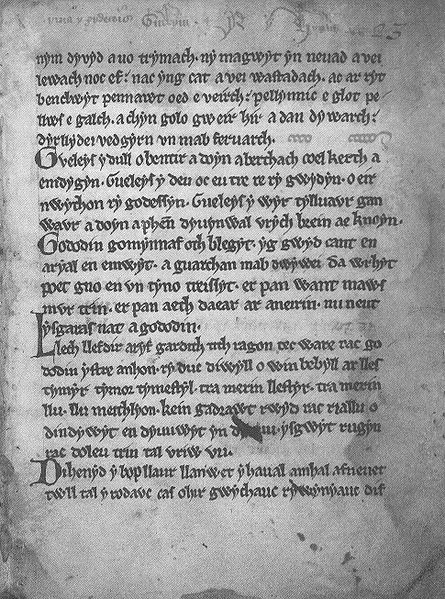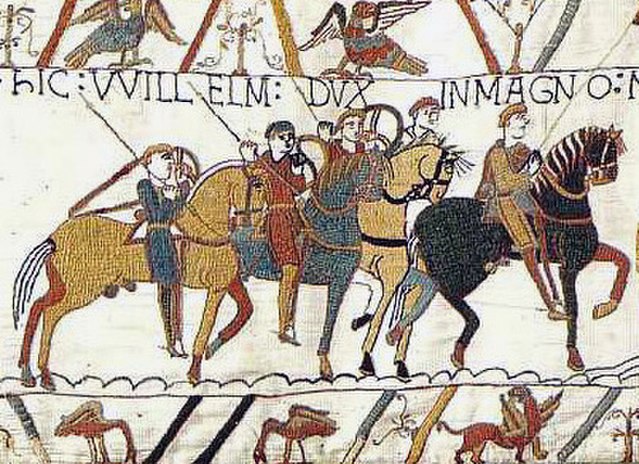British literature is literature from the United Kingdom of Great Britain and Northern Ireland, the Isle of Man, and the Channel Islands. This article covers British literature in the English language. Anglo-Saxon literature is included, and there is some discussion of Latin and Anglo-Norman literature, where literature in these languages relate to the early development of the English language and literature. There is also some brief discussion of major figures who wrote in Scots, but the main discussion is in the various Scottish literature articles.
A facsimile page of Y Gododdin c. 1275
First page facsimile of Beowulf
Sir Bedivere casts King Arthur's sword Excalibur back to the Lady of the Lake. The Arthurian Cycle has influenced British literature across languages and down the centuries.
Geoffrey Chaucer, father of English literature
The United Kingdom of Great Britain and Northern Ireland, commonly known as the United Kingdom (UK) or Britain, is a country in Northwestern Europe, off the coast of the continental mainland. It comprises England, Scotland, Wales, and Northern Ireland. The UK includes the island of Great Britain, the north-eastern part of the island of Ireland, and most of the smaller islands within the British Isles. Northern Ireland shares a land border with the Republic of Ireland; otherwise, the United Kingdom is surrounded by the Atlantic Ocean, the North Sea, the English Channel, the Celtic Sea, and the Irish Sea. The total area of the United Kingdom is 94,354 square miles (244,376 km2), with an estimated population of nearly 67.6 million people in 2022.
Stonehenge in Wiltshire is a ring of stones, each about 4 m (13 ft) high, 2 m (7 ft) wide and 25 tonnes, erected 2400–2200 BC.
The Roman Baths in Bath, Somerset, are a well-preserved thermae from Roman Britain.
The Bayeux Tapestry depicts the Battle of Hastings, 1066, and the events leading to it.
The Treaty of Union led to a united kingdom of all of Great Britain.








